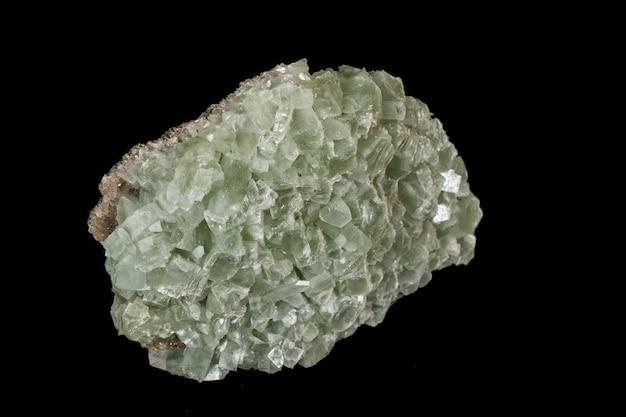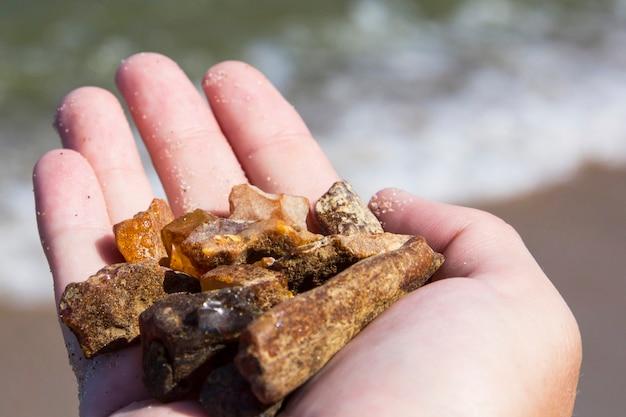If you own mineral rights in Texas, you may have considered selling them. But before you jump into the process, it’s important to understand the ins and outs of selling mineral rights and evaluate whether it’s the right decision for you. In this blog post, we’ll dive into the factors that can affect the value of mineral rights, the potential tax implications, and the average price per acre in Texas. We’ll also explore whether it’s better to hold onto your mineral rights or cash in on them. So, let’s explore the world of mineral rights and discover whether selling them is truly worth it.
Selling Mineral Rights in Texas
What are mineral rights
When you own land in Texas, you’re not just buying the surface area. Below the ground, there could be valuable natural resources like oil, gas, or minerals. These resources have their worth and can be bought, sold, or leased independently from the surface land. This is known as owning mineral rights.
The process of selling mineral rights
So, you’ve got mineral rights, and you’re considering selling them. Where do you even begin? Well, the first step is to determine the value of your mineral rights. Factors like the location, mineral type, current market conditions, and lease terms all come into play. Once you have an idea of the value, you can start looking for potential buyers.
Finding the right buyer
Finding the right buyer can make a big difference in your selling experience. You want someone who understands the market, has experience in buying mineral rights, and will offer you a fair price. Luckily, there are many reputable companies in Texas that specialize in purchasing mineral rights. Do your research, read reviews, and ask for recommendations to find the best fit for you.
Negotiating the deal
Once you’ve found a potential buyer, it’s time to negotiate the deal. This is where your research and preparation will come in handy. Have a clear understanding of what you’re willing to sell and what terms you’re comfortable with. Don’t be afraid to negotiate and ask for a fair price. Remember, you’re in control of your mineral rights, and you should make the deal that feels right for you.
The legal side of things
Selling mineral rights involves legal processes and paperwork. It’s essential to consult with an attorney who specializes in mineral rights transactions to ensure everything is done correctly. They will guide you through the legalities, review the contracts, and protect your interests. This step is crucial to avoid any potential legal disputes or complications down the line.
Selling mineral rights in Texas can be a profitable venture if done right. Remember to research, find the right buyer, negotiate the deal, and consult with a lawyer. By following these steps, you can navigate the process smoothly and maximize the value of your mineral rights. So, go ahead, make an informed decision, and get the most out of your investment in Texas mineral rights.
Mineral Rights Value Calculator
Calculating the value of your mineral rights can be a tricky business. Luckily, there are tools available to help you with this task. In this section, we’ll explore the wonders of the mineral rights value calculator and how it can assist you in determining the worth of your precious resources.
What is a Mineral Rights Value Calculator
A mineral rights value calculator is a nifty little tool that takes into account various factors to estimate the value of your mineral rights. With just a few clicks, you can get an approximate idea of how much your rights might be worth. It’s like having your own personal mineral rights guru, ready to provide you with an educated estimate.
Factors Considered
When using a mineral rights value calculator, several factors are taken into consideration to determine the value of your rights. These include the location of your mineral rights, current market conditions, the type and quality of minerals present, and the demand for those minerals. The calculator crunches these numbers and presents you with an estimated value for your mineral rights.
Ease of Use
Using a mineral rights value calculator is as easy as pie. Simply input the relevant information, such as your location, the size of your mineral rights, and any other details requested. Then sit back and let the calculator work its magic. In a matter of seconds, you’ll have an estimated value that can help guide your decision-making process.
A Tool for Negotiation
One of the great advantages of using a mineral rights value calculator is that it allows you to enter negotiations armed with knowledge. With an estimated value in hand, you’ll have a better understanding of what your mineral rights are worth. This can be incredibly helpful when dealing with potential buyers or lessees, as it gives you a solid starting point for negotiations.
So, if you’re looking to sell your mineral rights in Texas, don’t go into it blindly. Use a mineral rights value calculator to get a rough idea of the worth of your rights. It’s a simple and effective tool that can give you valuable insights and help you make informed decisions. Remember, knowledge is power, so empower yourself with a mineral rights value calculator. Happy calculating!
Inherited Mineral Rights in Texas
The Gift That Keeps on Giving
If you’re a lucky Texan who has inherited mineral rights, you might be sitting on a goldmine without even realizing it. Inherited mineral rights can be a blessing, but they can also be quite confusing to navigate. Don’t worry, though – we’re here to guide you through the ins and outs of this intriguing topic.
Understanding the Basics
So, let’s start from the beginning. Inherited mineral rights refer to the ownership of any minerals present below the surface of a property. These rights can be passed down from generation to generation, creating an opportunity for wealth and prosperity. Texas, known for its rich oil and gas reserves, is a hotbed for potential mineral rights owners.
Exploring the Potential
For those fortunate enough to inherit mineral rights in Texas, there’s a world of possibilities awaiting. Oil and gas exploration companies actively seek out mineral rights owners to strike a deal. You can choose to lease your rights, allowing companies to extract the resources in exchange for royalties, or you might decide to sell your rights outright. Either way, it could lead to a significant financial windfall.
Navigating the Maze
While inheriting mineral rights may sound like a dream come true, there are a few things to consider. First, understanding the terms of the inheritance is crucial. Is it a split estate, meaning someone else owns the surface while you own the minerals below? Are there any existing leases or contracts in place? Knowing the answers to these questions will help you make informed decisions about the future of your inherited mineral rights.
Seeking Professional Help
Given the complexities involved, seeking professional guidance is highly recommended. Consulting with an attorney or a mineral rights expert can ensure you maximize the value of your assets. They can help you navigate through legal documents and negotiate deals, making sure you don’t miss out on any opportunities.
The Final Word
Inheriting mineral rights in Texas can be an exciting and potentially lucrative venture. With ample oil and gas reserves throughout the state, you might be sitting on a goldmine. However, it’s essential to educate yourself and seek expert advice to make the most of these inherited assets. So, embrace your newfound wealth, and let your mineral rights lead the way to financial success!
Is it Worth Selling Mineral Rights
When it comes to selling mineral rights in Texas, one question that often comes to mind is whether it’s actually worth it. Let’s dive into the factors that can help you determine if selling your mineral rights is a smart move.
Evaluating the Potential
First and foremost, it’s crucial to evaluate the true potential of your mineral rights. Do some research and find out the estimated value of the minerals present on your property. Consider factors like market demand, current prices, and the overall outlook for the industry. This will give you an idea of the potential financial gain you might receive from selling.
Financial Needs and Goals
Another important aspect to consider is your personal financial situation. Do you have an immediate need for cash? Are you looking to invest in other ventures? Selling your mineral rights can provide a lump sum payment that could be valuable in achieving your financial goals. However, it’s important to weigh the long-term benefits against the short-term gains.
Royalty Payments vs. Lump Sum
If you decide to keep your mineral rights instead of selling, you’ll typically receive royalty payments when minerals are extracted from your land. These payments can provide a steady stream of income over a long period of time, potentially for generations. On the other hand, selling your mineral rights means you’ll receive a large lump sum upfront. Carefully consider whether you prefer the stability of royalties or the immediate financial boost from selling.
Risks and Uncertainties
While selling your mineral rights can bring financial benefits, it’s important to be aware of the associated risks and uncertainties. The market for minerals can fluctuate, and there’s no guarantee that prices will always remain high. Additionally, future technologies or developments in the industry could potentially diminish the demand for certain minerals. Take these factors into account before making your decision.
Emotional Attachment
Lastly, but equally important, consider any emotional attachment you may have to your land and the mineral rights. Sometimes, sentimental value outweighs financial gain. If you have a deep connection to the property or if it has been in your family for generations, selling your mineral rights might not feel right, regardless of the potential profit.
In conclusion, deciding whether to sell your mineral rights in Texas is a nuanced decision that requires careful consideration of various factors. Assess the potential financial gain, your personal financial needs and goals, the trade-off between royalties and lump sum payments, the risks involved, and any emotional ties to the land. By evaluating these aspects, you can make an informed decision that aligns with your unique circumstances.
Tax Implications of Selling Inherited Mineral Rights in Texas
As you delve into the world of selling mineral rights in Texas, it’s essential to understand the tax ramifications involved in the process. When it comes to inherited mineral rights, there are specific considerations you need to keep in mind to ensure you are prepared for any potential tax obligations.
Understanding the Basis
The basis of the inherited mineral rights is crucial to determining the tax implications upon their sale. The basis refers to the value of the mineral rights at the time of inheritance. If the value of the mineral rights has risen since they were inherited, you may be subject to capital gains tax on the difference between the inherited value and the sale price.
Long-Term vs. Short-Term Capital Gains
If you have owned the inherited mineral rights for more than a year before selling them, any gains from the sale will likely be classified as long-term capital gains. Long-term capital gains are typically taxed at a lower rate than short-term gains, making it advantageous to hold onto the inherited mineral rights for an extended period if possible.
On the other hand, if you sell the inherited mineral rights within a year of acquiring them, any profits will be considered short-term capital gains and subject to higher tax rates. Considering the potential tax savings, it may be wise to hold onto the mineral rights for at least one year before selling them.
Consultation with Tax Professionals
Navigating through the complex realm of taxes can be challenging, especially when it comes to unique situations like selling inherited mineral rights. To ensure you are handling the tax implications correctly, it is highly recommended to consult with a qualified tax professional. They can provide expert guidance and help you navigate the tax landscape specific to your inherited mineral rights in Texas.
Planning for Taxes
It’s important to plan ahead and take into account the potential tax consequences when deciding to sell inherited mineral rights. This includes setting aside funds to cover any tax obligations that may arise from the sale. By carefully considering the tax implications and seeking professional advice, you can plan accordingly and mitigate any surprises when it comes time to file your taxes.
In conclusion, while selling inherited mineral rights in Texas can be a lucrative endeavor, it’s essential to understand and prepare for the potential tax implications. Taking the time to familiarize yourself with the basis, capital gains classification, and consulting with tax professionals will help ensure you navigate the tax landscape smoothly. With proper planning and knowledge, you can make informed decisions regarding the sale of your inherited mineral rights while minimizing any tax burdens that may arise.
Average Price per Acre for Mineral Rights in Texas
Understanding the Value of Mineral Rights
When it comes to selling mineral rights in Texas, one critical factor that potential sellers must consider is the average price per acre for these rights. As every Texan knows, the Lone Star State is blessed with a wealth of natural resources, including significant deposits of oil, gas, and minerals. Consequently, these resources have become highly sought after, making the value of mineral rights a hot topic of discussion.
Factors Affecting the Average Price
Several factors influence the average price per acre for mineral rights in Texas. Firstly, the location plays a significant role in determining the value. Mineral-rich regions, such as the Permian Basin or Eagle Ford Shale, often command higher prices due to their proven productivity. Additionally, the size of the property and the extent of the mineral deposits present also impact the overall value.
The Excitement of the Auction Scene
To get a better understanding of the average price per acre, it’s worth exploring the thrilling world of mineral rights auctions. These events attract a diverse range of buyers, from small businesses to large oil and gas corporations, all eager to acquire valuable rights. The competitive nature of auctions can drive prices up, ultimately benefiting sellers who may enjoy a higher return on their investment.
Texas Pride and Unpredictable Prices
In the unpredictable realm of mineral rights, prices in Texas can vary greatly. With oil and gas prices subject to market fluctuations, it’s not uncommon for prices to increase significantly when commodity prices soar. On the flip side, when the market experiences a downturn, prices can take a tumble too. Therefore, keeping track of market trends and consulting experts in the industry is crucial for sellers looking to capitalize on the highest average price per acre.
Negotiating like a Texan
When entering negotiations for selling mineral rights, it’s essential to be well-informed and shrewd. Sellers should do their due diligence and research recent sales in their area to gain a better understanding of the current market value. Furthermore, working with an experienced professional, such as a landman or a mineral rights broker, can provide invaluable guidance and ensure a fair deal is reached.
Determining the average price per acre for mineral rights in Texas is not a straightforward task. It requires careful consideration of several factors, including location, property size, and market conditions. By staying informed, keeping track of market trends, and seeking expert advice, mineral rights owners in Texas can maximize their potential returns and secure the best deals possible. So, if you’re considering selling your mineral rights, it’s time to unleash your inner Texan, do your homework, and prepare for an exciting journey in the dynamic world of Texas mineral rights.
How Much Do Mineral Rights Sell for in Texas
Understanding the Value of Mineral Rights in the Lone Star State
If you’ve ever wondered how much your mineral rights might be worth in Texas, you’re not alone. With its rich reserves of oil, gas, and other natural resources, Texas has long been a hotbed for mineral rights transactions. But determining the exact price can be a complex matter. Factors such as location, demand, market conditions, and the specific minerals being extracted all play a role in determining the value. So, let’s dive into the world of mineral rights and discover what influences their selling price in Texas.
Location, Location, Location: The Texas Advantage
When it comes to mineral rights values, Texas has a significant advantage. The state’s geological makeup has created an abundance of valuable minerals, especially oil and gas. This favorable geological condition has attracted numerous energy companies to Texas, resulting in a high demand for mineral rights. Additionally, Texas has a well-established infrastructure and a strong regulatory framework, making it an attractive destination for buyers. All these factors combine to drive up the value of mineral rights in the Lone Star State.
The Many Facets of Mineral Rights Valuation
To determine the price of mineral rights in Texas, various factors come into play. One crucial aspect is the type of minerals present. Oil and gas tend to be more valuable than other minerals, so if your property has significant reserves of these resources, you can expect a higher selling price. Moreover, the size and quality of the reserves also influence the value. A property with large, easily extractable reserves is more likely to fetch a premium price.
Market Conditions: A Balancing Act
As with any commodity, mineral rights prices are influenced by market conditions. The supply and demand dynamics of the energy industry have a direct impact on the value of mineral rights in Texas. When oil and gas prices are high and demand is strong, the value of mineral rights tends to rise. Conversely, during times of oversupply or low demand, prices may dip. Keeping an eye on the market trends can help you gauge the optimal time to sell your mineral rights.
The Perfect Blend: Negotiation and Professional Advice
When it comes to selling your mineral rights, finding the right buyer and negotiating a fair price are crucial steps. While it’s important to have a general understanding of mineral rights value, seeking professional advice is highly recommended. Mineral rights experts can assess the specifics of your property, evaluate market conditions, and guide you through the negotiation process. Their expertise can help you secure the best possible price for your mineral rights in Texas.
While determining the exact selling price of mineral rights in Texas is no small feat, understanding the key factors that influence their value can give you a head start. With its favorable geological conditions, strong industry presence, and reliable infrastructure, Texas offers a promising market for mineral rights transactions. By staying informed, seeking professional guidance, and gauging market conditions, you can position yourself to make the most of your valuable mineral rights in the Lone Star State.
Where is the Best Place to Sell Mineral Rights
When it comes to selling your mineral rights in Texas, finding the best place to make the deal can be a bit of a challenge. But fear not, because I’m here to guide you through the process! So, let’s dive deep into the options and find out where your mineral rights will fetch the best price.
Local Auctions: Hidden Gems!
One of the lesser-known options is local auctions. These events bring together buyers and sellers in a lively, competitive atmosphere. Attendees can bid on mineral rights, driving up the price to potentially lucrative heights. Keep an eye on local listings or join local community groups to stay in the loop about upcoming auctions in your area.
Online Marketplaces: The Digital Frontier
In this day and age, the internet has unlocked a world of opportunities, making online marketplaces an excellent option. Websites like TexasMineralRights.com and MineralRightsMarketplace.com are dedicated platforms where buyers and sellers can connect directly. Plus, you can easily compare offers and negotiate deals that suit your needs, all from the comfort of your own home!
Engaging a Mineral Rights Broker: Let Them Do the Work
If the idea of navigating through the selling process on your own seems overwhelming, enlisting the help of a mineral rights broker might be the way to go. These professionals have the expertise and industry connections to find the best buyers for your mineral rights. You can sit back, relax, and let them handle the negotiations and paperwork for you.
Local Networking: Tap into the Community
Sometimes, it’s all about who you know. Don’t underestimate the power of local networking when it comes to selling mineral rights. Attend industry events, join relevant forums, and connect with professionals in the field. Building relationships can lead to potential buyers or referrals, ensuring you’re in the right place when the time comes to sell.
Wrapping Up
So, where is the best place to sell mineral rights in Texas? Well, it ultimately depends on your preferences and circumstances. Local auctions can bring surprises, online marketplaces offer convenience, mineral rights brokers bring expertise, and local networking taps into valuable connections. Ultimately, exploring multiple avenues and considering all the options will help ensure you get the best deal for your valuable mineral rights. Happy selling!



